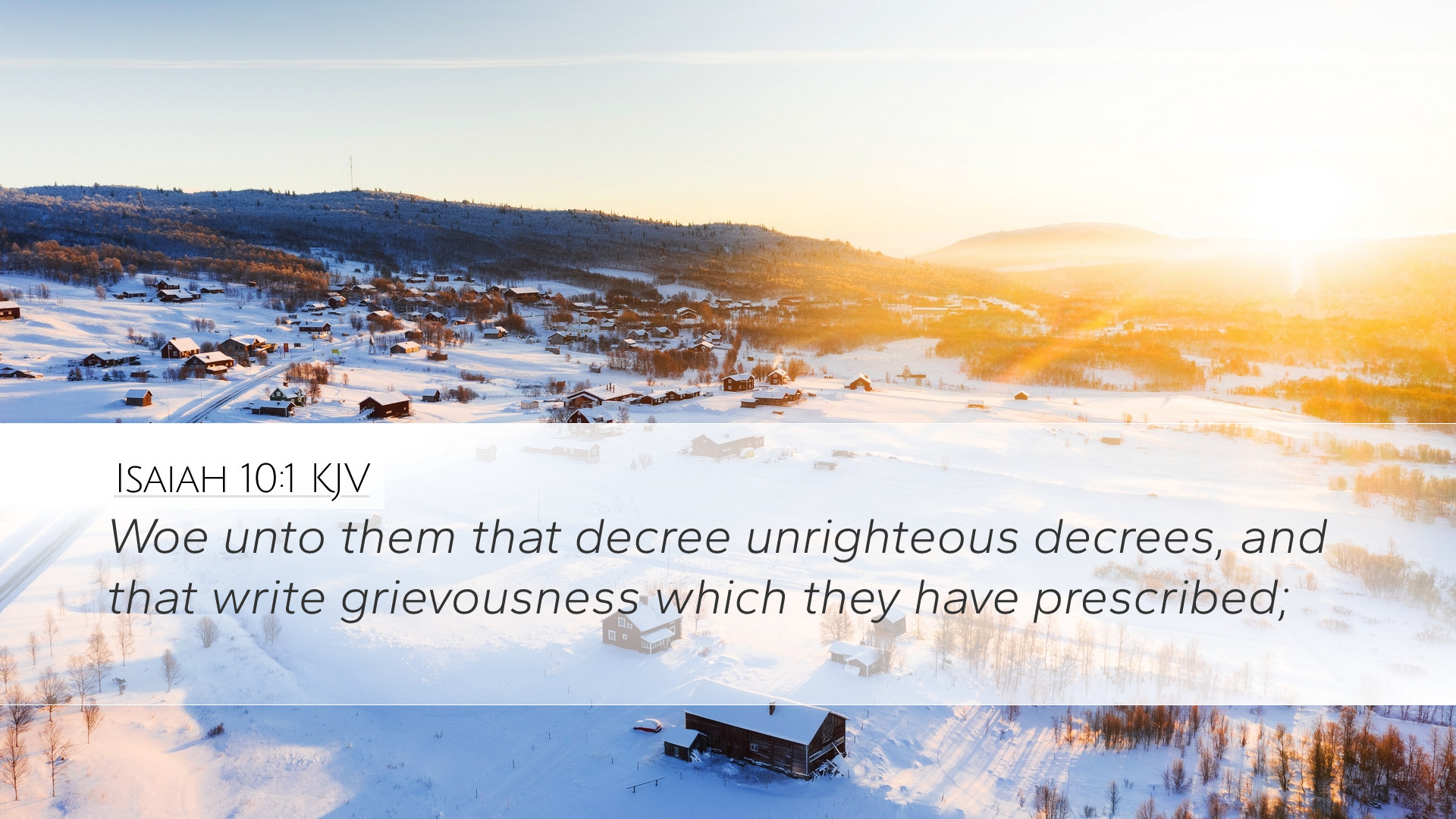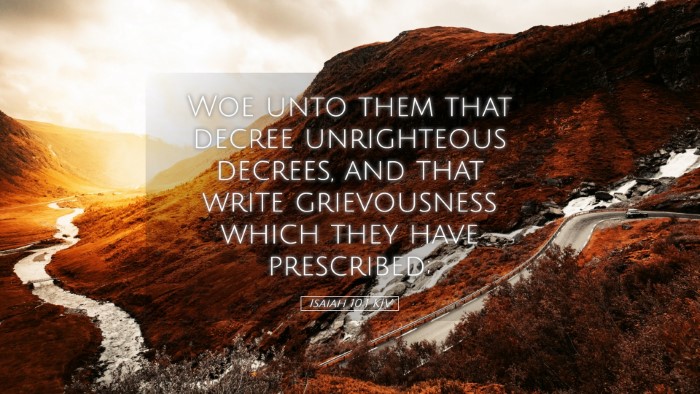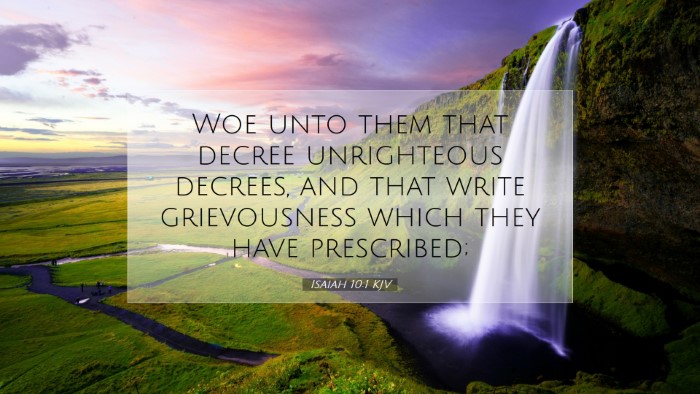Commentary on Isaiah 10:1
Isaiah 10:1 states: "Woe unto them that decree unrighteous decrees, and that write grievousness which they have prescribed;" This verse serves as a profound condemnation of unjust laws and the oppressive actions taken by those in power.
Contextual Background
The context of this passage must be understood within the broader narrative of the Book of Isaiah. The prophet addresses the Israelites during a time of moral decay and social injustice. The kingdom of Judah was under threat from external enemies, but Isaiah's focus is primarily on the internal corruption that plagued the leaders of his people.
The Nature of Unrighteous Decrees
According to Matthew Henry, the "unrighteous decrees" refer to laws that are not only unjust but also harmful to the people they are meant to govern. These decrees arise from a wicked heart and a desire for power over righteousness.
Albert Barnes adds that such decrees often prioritize the interests of the powerful, disregarding the rights and well-being of the vulnerable. This reflects a fundamental disconnect between the moral obligations of leadership and the actions taken by those in authority.
Adam Clarke emphasizes that the writers of these grievous decrees act without fear of consequence, assuming their authority will shield them from divine judgment. This attitude contributes to a systemic oppression that disrupts the societal fabric.
The Consequences of Injustice
The consequences of unrighteous decrees are far-reaching, impacting not just the immediate victims but also the overall spiritual health of the nation. As noted by Matthew Henry, “The sins of the rulers will draw down judgments upon the people.”
Albert Barnes illustrates that when a society allows injustice to infiltrate its laws and governance, it ultimately leads to chaos and disintegration of moral authority. The implication is that the health of a nation is linked directly to the righteousness of its laws.
The Call to Righteousness
This verse also serves as a call to action for those in positions of leadership. Adam Clarke urges leaders to consider their responsibilities before God and the consequences of their actions. Justice and righteousness should be the foundation of any society.
Isaiah’s pronouncement of “woe” is a serious warning that indicates divine displeasure. This warning is applicable not only to ancient Israel but also to contemporary societies that enact unjust laws. It challenges modern leaders to evaluate the equity and morality of their legislation.
Application for Today
For pastors, students, theologians, and Bible scholars, this verse presents a significant reflection point on the intersection of faith and social justice. It demands that we be vigilant against the impulse to prioritize political or personal gain over the well-being of our communities.
-
Social Justice: The call for righteousness in legislation and governance is as relevant today as it was in Isaiah's time. Issues of equity, justice, and fairness should be paramount for believers.
-
Leadership Accountability: Those in leadership must be held accountable for their actions. Christian leaders, in particular, have the responsibility to lead with integrity and compassion.
-
Personal Reflection: Every individual is encouraged to reflect on their own stance towards justice and righteousness. Are we complicit in injustice through silence or inaction?
-
Community Engagement: Christians are called to engage with their communities to advocate for laws and policies that align with biblical principles of justice and mercy.
-
Prayer and Intercession: Finally, prayer for leaders and lawmakers is essential. As they make decisions that affect lives, they must be influenced by the principles of justice outlined in Scripture.
Conclusion
Isaiah 10:1 encapsulates a timeless truth concerning the responsibility of leadership in enacting justice. It is a sobering reminder that God’s judgment will ultimately fall upon those who exploit their power for personal gain. As the biblical narrative unfolds, this verse beckons us to pursue justice diligently and to ensure that our voices advocate for the oppressed.


